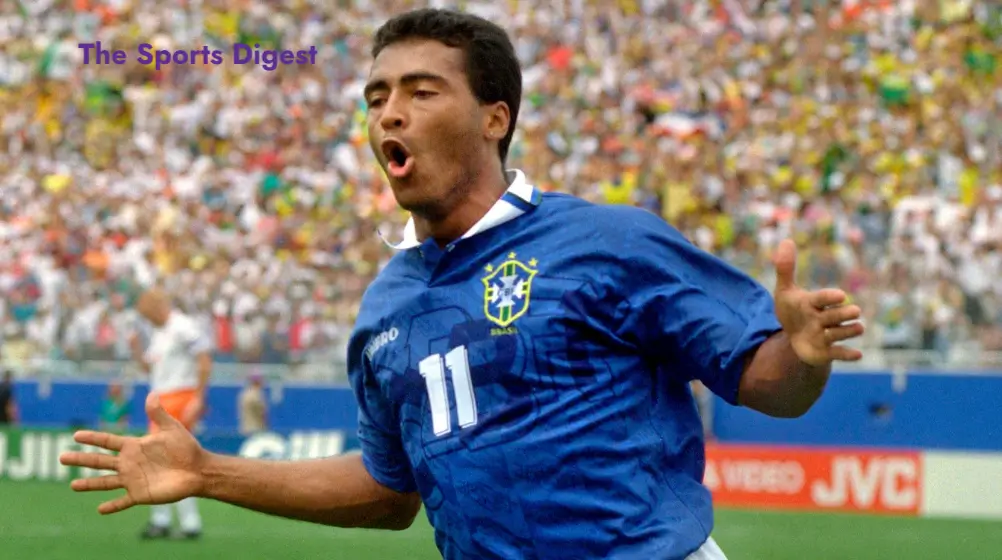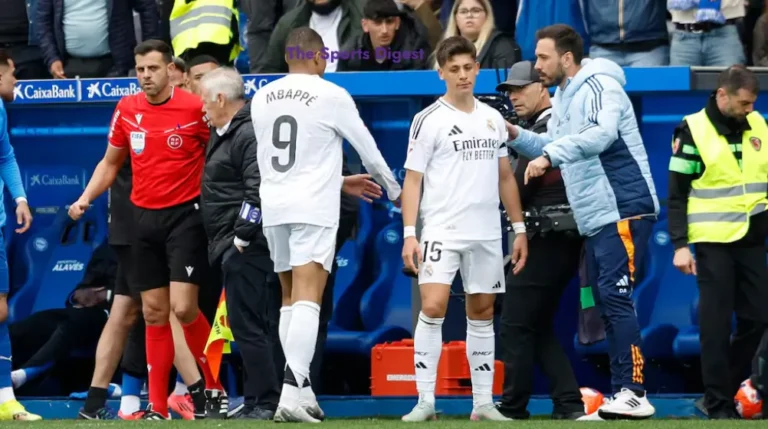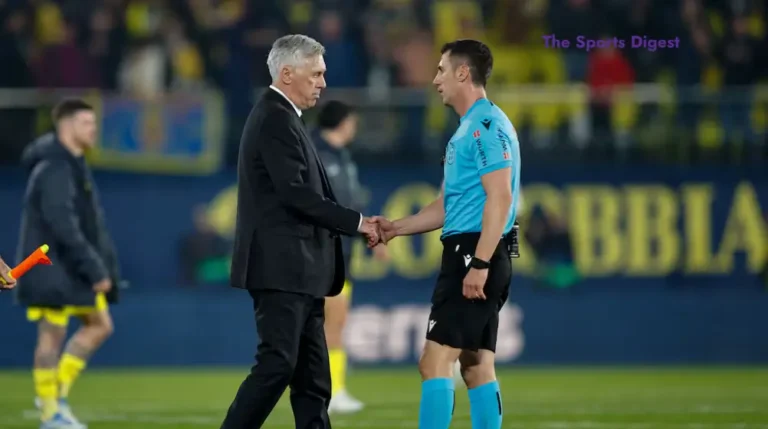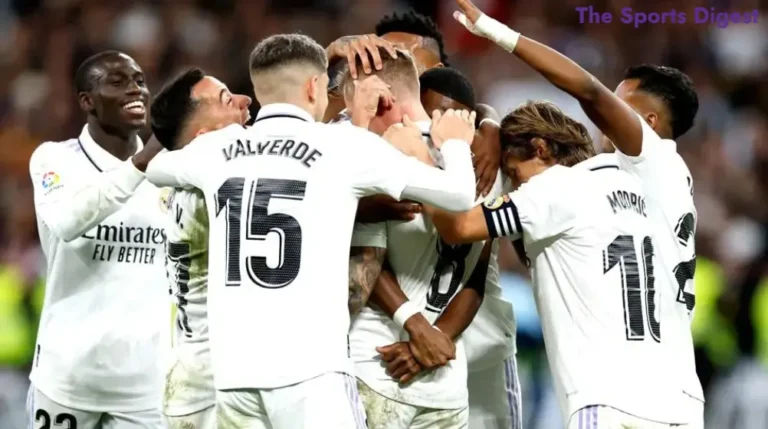Romário Mentality and Talent Crisis
Football has always thrived on unique talents and mentalities that turn players into legends on the pitch. However, over time, many, including Brazilian legend Romário, believe that modern football is suffering from a real crisis in mentality and talent, making it less exciting than it once was. So, what are the true reasons behind this crisis?
Table of Contents
Football Has Become a Purely Commercial Industry
- The Impact of Money on Player Development : In the past, players were primarily driven by passion for the game. Today, football has become an industry flooded with investments and enormous financial rewards. Young players are lured by massive contracts from an early age, reducing their motivation to develop and work hard.
- Players’ Priorities Have Shifted : With rising wages and bonuses, many players focus more on financial aspects rather than improving their skills on the pitch, affecting overall performance in major matches.
- The Influence of Media and Marketing : Media and social media play a huge role in shaping players’ mindsets today. Instead of concentrating on their on-field performance, many are preoccupied with brand deals and sponsorships.
- The Changing Role of Agents : In the past, player agents ensured financial security without disrupting their clients’ football careers. Today, agents prioritize lucrative deals, sometimes at the expense of the player’s development and career growth.
Romário and the Absence of a Competitive Mentality
Romário was an example of a player who feared no challenge, whether against solid defenses or in crucial moments. He thrived on pressure, using his intelligence and quick decision-making to outplay even the toughest defenders. His confidence and determination set him apart, making him one of the greatest forwards of his generation.
Today, many players lack passion and determination, relying more on individual skills than team spirit and a winning mentality. The modern game often prioritizes tactics and structured play over raw instinct and creativity. Many young players seem more concerned with personal branding and social media presence rather than developing a warrior-like mentality on the field. This shift has led to a decline in truly fearless players who can change the course of a game single-handedly.
Decline in Competition Levels
In the past, football was driven by intense competition, where players constantly strived to be the best. However, with early professionalization and the comforts of modern contracts, this competitive spirit has significantly diminished. Players today often enjoy financial security from a young age, which can reduce their motivation to push themselves to their limits.
Romário, known for his fearless mentality and relentless drive, exemplified the hunger that once defined football’s greatest players. His ability to thrive under pressure and continuously prove himself on the biggest stages set him apart from many modern footballers. Today, the rise of comfortable lifestyles and lucrative contracts has significantly altered players’ mindsets. In the past, legends like Romário pushed their limits to achieve greatness, fueled by an insatiable hunger to succeed. Now, with massive salaries, luxury living, and sponsorship deals secured at an early stage, many players lack that same drive to improve. The urgency to compete at the highest level has diminished, as financial security often reduces the pressure to perform.
This shift has led to a decrease in the fierce competition that once defined elite football, where every match was a battle for supremacy. Instead of developing the warrior-like mentality seen in past icons, many young talents focus more on maintaining their status rather than surpassing expectations. Without this relentless pursuit of excellence, the intensity and passion that once made football so thrilling are slowly fading, leading to a decline in true game-changing players.
Romário on the Impact of Technology on Athletic Mentality
With the rise of technology in modern football, many players now rely heavily on data and analytics to guide their training and performance. This shift towards numbers and statistics has changed the way players approach the game. Instead of focusing solely on honing their natural skills through practice and intuition, players are increasingly using technology to track their movements, analyze their decision-making, and optimize their physical performance. While this data can be valuable for understanding certain aspects of the game, it can also lead to a decline in creativity.
The overreliance on data sometimes results in players focusing more on following optimal strategies rather than trusting their instincts or experimenting with new moves. This structured, data-driven approach has less room for the improvisation and flair that once made football unpredictable and thrilling. As a result, the game has become more mechanical, with fewer players willing to take risks or showcase their individuality on the pitch.
Lack of True Leaders in Teams
In the past, legendary players like Maldini, Zidane, and Romário were natural leaders who not only excelled individually but also guided their teams with charisma and responsibility. They took charge in critical moments, inspiring their teammates with their actions and words.
These players had the mental strength and tactical awareness to influence the game and lead by example. Today, however, the role of leader on the pitch seems less prominent, with few players stepping up to take full responsibility. Many modern players focus more on individual performances or branding, leaving a gap in leadership qualities that are essential for team cohesion and success.
Romário on the Decline in Footballing Talent Quality
- Weak Youth Academies and Development Programs : Many European and global clubs now invest in youth academies, but a significant gap exists in how young players are prepared. Previously, players honed their skills on the streets before entering academies, whereas today’s rigid training structures often stifle creativity.
- The Absence of Extraordinary Players : In the past, players like Pelé, Maradona, and Zidane stood out due to their exceptional style of play. Today, fewer players possess truly unique skills that set them apart.
The Evolution of Defensive Tactics
Modern coaches tend to focus heavily on defensive strategies, often prioritizing organization and structure over attacking flair. While defensive solidity is crucial, this approach has unintentionally limited the freedom and opportunities for attacking talents to express their creativity. By emphasizing disciplined, compact defenses, many teams reduce the space available for forwards to exploit and create individual moments of brilliance. As a result, fewer players are able to single-handedly change the course of a game with a flash of skill or a brilliant solo effort.
This shift has led to a more tactical and less spontaneous style of play, where creativity and flair are often stifled in favor of a safer, more controlled approach. The number of game-changers in attack has diminished, making it harder to witness the kind of exceptional performances that once defined football’s most exciting players. The evolution of defensive tactics has thus played a significant role in the decline of dynamic, unpredictable football.
Media Pressure on Young Players
Today’s young players face constant media scrutiny, which can hinder their natural development on the field. The pressure to perform at a high level, coupled with public criticism, often distracts them from focusing on improving their skills. Rather than dedicating themselves to training and growth, many players are preoccupied with their social media presence, responding to comments, and managing their public image.
This constant cycle of feedback from fans, media, and sponsors can lead to anxiety, affecting their confidence and performance. Instead of nurturing raw talent, this environment can divert their attention from what truly matters: the game itself.
Romário on the Impact of This Crisis on Football’s Future
- Lower Competitive Levels : If this crisis persists, global football may witness a decline in quality, affecting fan enjoyment and reducing the appeal of major matches. A drop in talent quality means weaker competition, potentially leading to dwindling audience interest.
- The Need to Change Player Development Methods : There is an urgent need to rethink youth training approaches, giving young players more freedom to express themselves creatively rather than imposing rigid tactical structures that limit their abilities.
- Coaches’ Role in Reviving Exciting Football : Coaches play a crucial role in restoring football’s high standards. They must focus on developing players mentally and technically, not just tactically.
- The Importance of Developing Talent in Underrated Regions : Many exceptional players emerge from impoverished regions where they develop skills naturally. Clubs should invest in scouting and nurturing talent from these areas rather than relying solely on structured European academies.
Romário: Can the New Generation Change the Narrative?
Despite current challenges, there is still hope for a new generation of players with a strong competitive mentality and exceptional technical abilities to emerge.
Conclusion: Is There Hope for Football’s Glory to Return?
Despite the obstacles, there is still a chance for football to regain its former glory. However, this requires re-evaluating how talent is developed and reinforcing a competitive mindset among young players. Romário, one of football’s greatest legends, has consistently highlighted the importance of both mentality and natural ability in shaping a player’s career.
His insights reveal that success is not just about technical skills but about instilling the right mindset from an early age. Football must reclaim its original passion, with players pushing their limits and striving for excellence, just as Romário did during his illustrious career.
This renewed focus on passion, discipline, and perseverance will ensure that football remains the world’s most popular and thrilling sport. By fostering the right environment for young players to develop both their skills and mentality, we can hope to see a resurgence in the beautiful game.
Have you ever read an article like this?
There are no reviews yet. Be the first one to write one.






